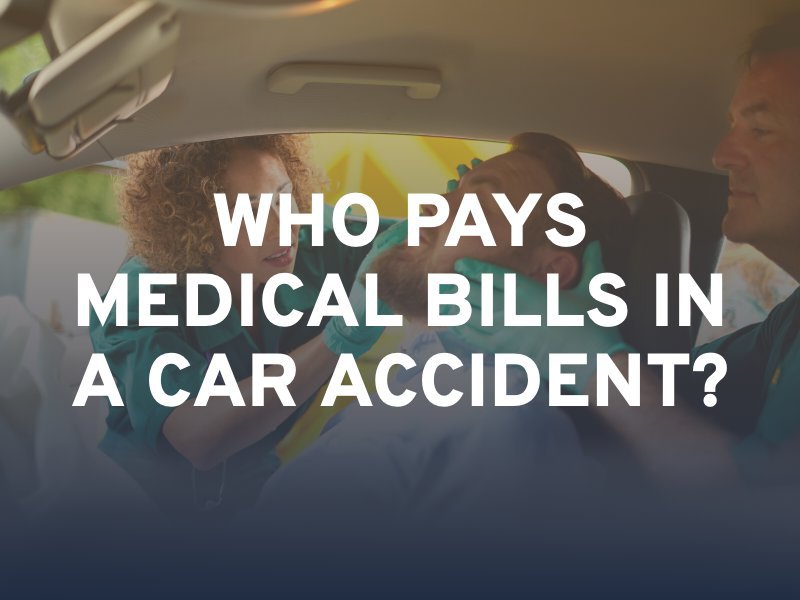Medical bills are the first expense to stack up after a car accident. Medical costs can include ambulance fees, hospital stays, emergency surgeries, other treatments, medications, physical therapy and rehabilitation. The total medical costs after a car accident can reach into the hundreds of thousands for someone with a severe or catastrophic injury. If you were recently injured in a car accident, you may be wondering – who will pay for your medical bills? The answer depends on your specific situation. Continue reading to learn more and if you have further questions, speak with a knowledgeable Monmouth County car accident attorney.

New Jersey is a no-fault insurance state. In a no-fault state, an injured car accident victim’s first outlet for financial recovery is personal injury protection insurance, or PIP. PIP is a type of first-party insurance, meaning it is the injured driver’s own insurance coverage. An injured driver will seek benefits from his or her PIP insurance regardless of whether or not he or she was at fault for the accident in New Jersey.
Personal injury protection in a no-fault state will pay for a driver and his or her passengers’ medical bills and lost wages, up to the policy’s limit. If your medical expenses exceed this limit, you may have to pay for the rest of them out of pocket or using a secondary type of insurance. PIP will be your only option for financial recovery in a no-fault state if your injuries do not meet the state’s serious injury threshold. In a fault state, on the other hand, you can hold the negligent party responsible for your losses, regardless of injury severity.
If you run out of PIP insurance, you may be able to fall back on your health insurance or medical payment auto insurance for additional coverage. In some cases, a car insurance company will pay upfront for your medical bills, then use a process called insurance subrogation to hold the negligent party responsible for recouping the costs. In other cases, the hospital where you seek treatment may issue a medical lien against you until you pay back what you owe.
If you have a serious injury, it is important to note that you can act outside of New Jersey’s no-fault insurance rule to bring a liability claim against the other driver. In this case, a successful claim would make the other driver or at-fault party pay for your medical bills. A serious bodily injury in New Jersey is one that causes a significant or permanent loss of a bodily function, such as a broken bone, traumatic brain injury, spinal cord injury or amputation.
With a serious injury, you can hold the party responsible for causing your car accident accountable for related losses. If the other driver was texting and driving, for example, that driver will owe you compensation for a serious or catastrophic car accident. Every driver in New Jersey must carry minimum amounts of bodily injury and property damage liability auto insurance to pay for these claims.
Another possibility for medical bill payment is a third party. If the car accident gave you a serious bodily injury, but the other driver was not to blame, you may be able to file a claim with somebody else’s insurance provider. In a crash involving a roadway defect such as a pothole, the at-fault party would be the city or state government. In a case where the automobile contained a defect, the manufacturer would be liable. Consult with an attorney for assistance identifying the correct defendant(s) in your car accident case.
By taking the right steps after an auto accident in New Jersey, you may be able to avoid paying your medical bills out of pocket. Take certain actions immediately after the collision to build a stronger insurance claim. These include taking photographs, going to a hospital right away and not admitting fault for the collision.
It can be difficult to understand whether you should file a first-party or third-party insurance claim after a car crash in New Jersey. Before accepting any type of settlement for your medical bills, talk to a lawyer about the best course of action for you.